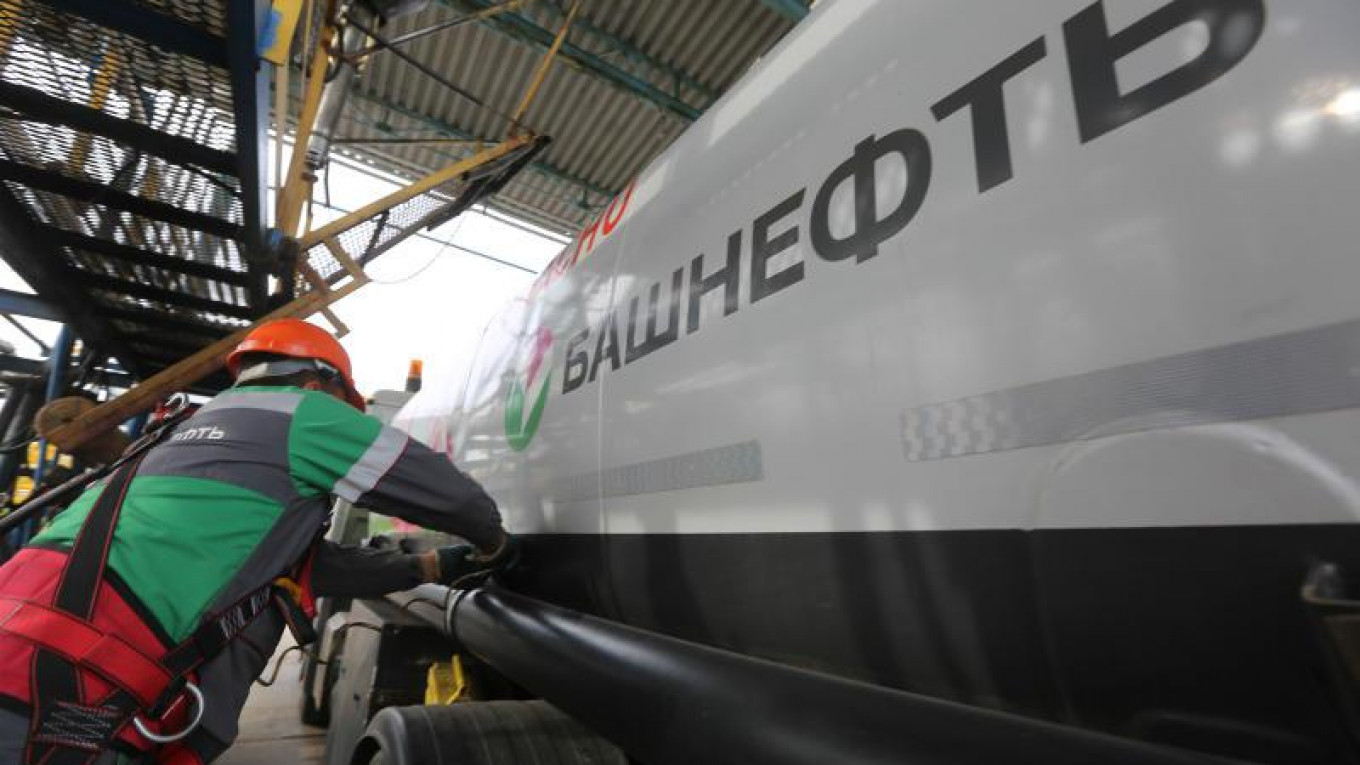“It’s our money.” With those words, Rosneft head Igor Sechin responded three years ago to TNK-BP minority shareholders asking about their prospects for one day earning company dividends. That statement went viral. The company was not paying dividends at the time and it was only after Prime Minister Dmitry Medvedev intervened that Sechin had Rosneft make a formal offer.
On Oct. 10, Medvedev signed the order to sell Rosneft a 50.07 percent stake in Bashneft. The deal closed on Oct. 12, with Rosneft paying 329.7 billion rubles ($5.2 billion) to the Federal Property Management Agency.
As the new majority shareholder in Bashneft, the law gives Rosneft until Nov. 17 to offer to buy out the company’s minority shareholders. Two federal officials confirmed that the offer will take place. “We will act in strict accordance with current legislation,” said Rosneft press secretary Mikhail Leontyev.
The offer must be set at either the average weighted price on the stock exchange for the six months prior to the transaction, or the price of the most recent transaction — whichever is higher. Rosneft purchased ordinary Rosneft shares at a price 24 percent higher than the average weighted price on the stock exchange in the last six months. That means Rosneft would have to pay 218.3 billion rubles to buy out all of the shareholders, if they decide to sell. That does not include the 76.9 billion rubles it would pay for the stake held by the republic of Bashkortostan, which so far has said it will not sell.
Rosneft, however, might still manage to save its money. The State Duma is slated to look at a bill in November that would free Rosneft of its obligation to make an offer to Bashneft minority shareholders. The amendments to the law “On Joint Stock Companies” were introduced this summer. The bill would exempt a company from its obligation to offer to buy out minority shareholders if the transaction was the result of “carrying out acts of the president or acts of the government.” The bill’s authors also propose making the law retroactive.
Senior officials deny any knowledge of the bill.
Five of seven lawyers questioned by the Vedomosti newspaper believe that the amendments would make it possible for Rosneft to avoid having to make an offer.
The bill was originally written in order to enable Gazprom to avoid making an offer to minority shareholding gas distribution companies that were acquired from Rosneftegaz by government decree, according to an Interfax report citing a government agency.
This is not the first time legislators proposed making a law retroactive. However, this time it could violate the rights of Bashneft minority shareholders, lawyers said. “This could affect the investment climate in the country,” added Ilya Fedotov, a partner with Orient Partners.
This is one more step toward giving the state a more privileged position in civil transactions at the expense of private entities, complained Westside Advisors partner Sergei Vodolagin. “It turns out that if a private entity purchases a 30-percent stake in a public joint-stock company, it is obligated to make an offer to buy out the other shareholders,” he said. “But if the state is in the same position, it is not obliged. The Russian Constitution recognizes and gives equal protection to both private and public property,” Vodolagin said.
News of the bill has caused a scare among investors, driving the company’s ordinary shares down by 6.37 percent on Friday, and its preferred shares by 4.41 percent. The daily turnover in ordinary Bashneft shares doubled to approximately 1 billion rubles, up from the usual 400 million rubles – 500 million rubles per day. Transactions involving preferred securities tripled to 343 million rubles, up from 77 million rubles – 140 million rubles before, according to a trader with one major bank.
However, other factors might have been the cause: one Citi analyst believes that Rosneft must have compelling reasons to consolidate Bashneft and that it will better amplify the synergetic effect of the purchase.
A Message from The Moscow Times:
Dear readers,
We are facing unprecedented challenges. Russia's Prosecutor General's Office has designated The Moscow Times as an "undesirable" organization, criminalizing our work and putting our staff at risk of prosecution. This follows our earlier unjust labeling as a "foreign agent."
These actions are direct attempts to silence independent journalism in Russia. The authorities claim our work "discredits the decisions of the Russian leadership." We see things differently: we strive to provide accurate, unbiased reporting on Russia.
We, the journalists of The Moscow Times, refuse to be silenced. But to continue our work, we need your help.
Your support, no matter how small, makes a world of difference. If you can, please support us monthly starting from just $2. It's quick to set up, and every contribution makes a significant impact.
By supporting The Moscow Times, you're defending open, independent journalism in the face of repression. Thank you for standing with us.
Remind me later.






